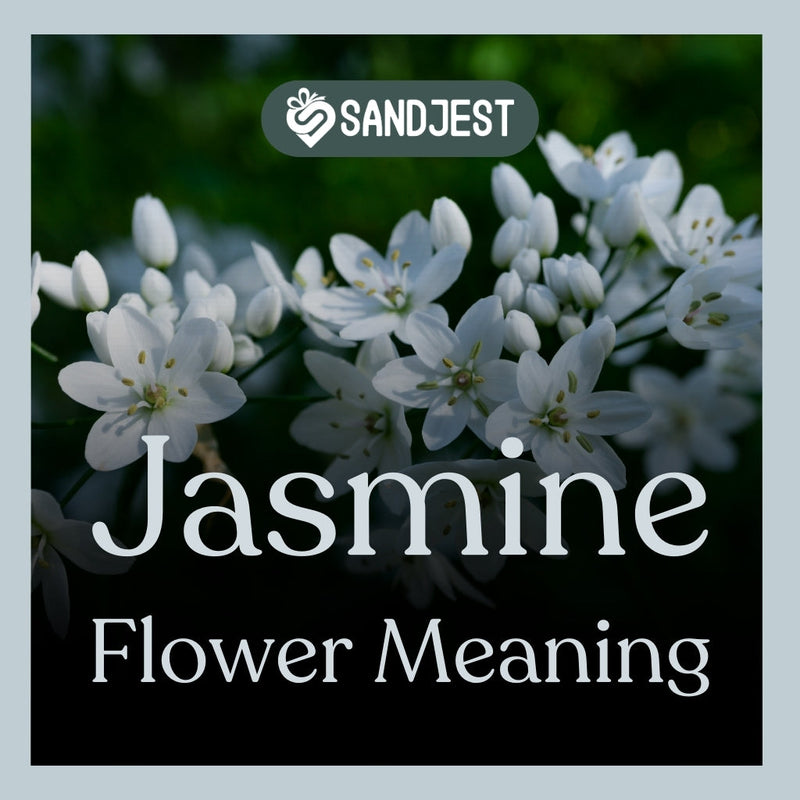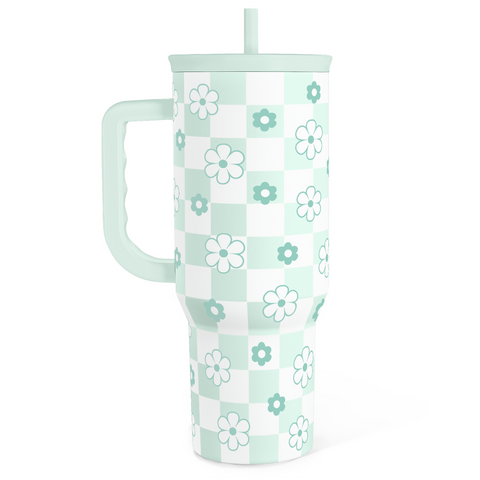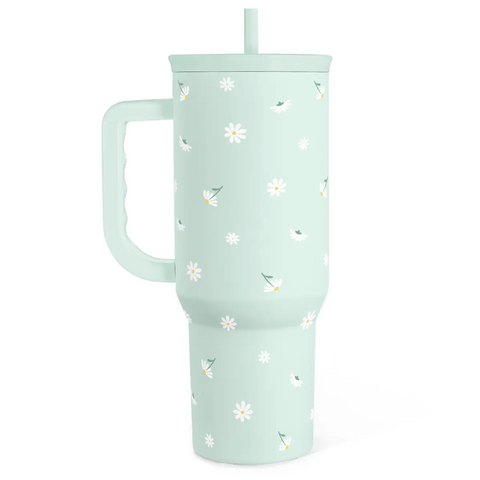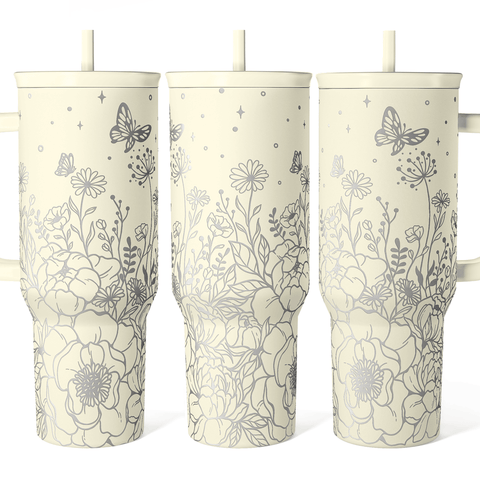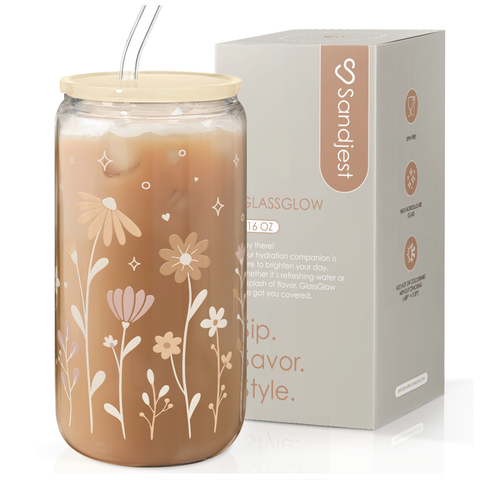Jasmine Flower Meanings, Folklore & Uses
Table of Contents
There’s something enchanting about the jasmine flower. Its delicate petals and sweet aroma carry a deeper message, one rooted in history and culture. Understanding the jasmine flower meaning unlocks stories of love, purity, and elegance that have charmed people for centuries.
But what makes jasmine so special? It’s not just its beauty; it’s the way it connects us to timeless values like harmony and hope. Curious to explore its significance and uncover its ties to romance and serenity? Stick around, and let’s journey through the fragrant world of jasmine to discover its secrets and meanings.
Etymological Meaning Of Jasmine Flower

The etymology of the jasmine flower reveals a beautiful and straightforward lineage that reflects its cultural significance and historical roots. The name "jasmine" has traveled through several languages, each contributing to its rich heritage.
Language Origins and Translations
- Persian: یاسمن (yasmin) - Meaning "gift from God."
- Arabic: ياسمين (yasamin) - A direct derivation from Persian, maintaining the meaning related to divinity and beauty.
- French: jasmin (earlier jessemin) - Adapted from Arabic, this form entered the English lexicon in the late 16th century.
- English: jasmine - A modification of the French term, which became widely used in English literature and culture.
The journey of the word "jasmine" begins in ancient Persia, where it was first cultivated. The Persian word "yasmin" signifies not only the flower itself but also conveys a sense of divine beauty, as it translates to "gift from God."
This meaning is echoed in Arabic, where "yasamin" retains a similar connotation. The transition into European languages occurred through trade and cultural exchange, particularly with the introduction of jasmine to France, where it became known as "jasmin."
Cultural Significance
Jasmine flowers are not just known for their fragrant blooms; they carry deep symbolic meanings across various cultures:
- Love and Romance: Jasmine is often associated with love and sensuality. Its sweet scent makes it a popular choice for weddings and romantic gestures.
- Purity and Innocence: The delicate white petals symbolize purity and innocence, making jasmine a fitting flower for celebrations of new beginnings.
- Spiritual Connection: In many traditions, jasmine is linked to spiritual growth and enlightenment. It is used in religious rituals and offerings, representing a connection to the divine.
- Feminine Beauty: The flower embodies grace and charm, often associated with feminine qualities in various cultures.
Historical Context
Historically, jasmine has been revered for its beauty and fragrance since ancient times. It is believed to have originated in Persia (modern-day Iran) and was introduced to Egypt around 1000 BCE. The Egyptians used jasmine in their luxurious baths and as part of funerary practices, highlighting its importance in both life and death.
The flower spread throughout the Mediterranean region during the Middle Ages, reaching Europe by the 16th century. In France, particularly in Grasse, jasmine became integral to the perfume industry due to its aromatic properties.
In Asia, jasmine holds significant cultural value. In India, it has been cultivated for centuries for use in religious ceremonies and as adornment for women’s hair. It appears in ancient texts like the Vedas and Kamasutra, emphasizing its longstanding importance in Indian culture.
Overall, the etymology of jasmine reflects not just a linguistic evolution but also a rich history of cultural significance spanning continents and centuries. Its meanings—rooted in beauty, love, purity, and spirituality—remain deeply impactful today.
Symbolism Of Jasmine Flower
- Love: Jasmine is a powerful symbol of love, encompassing not just romantic affection but also platonic adoration for friends and family. Its enchanting fragrance and delicate beauty make it a popular choice for expressing deep emotional connections.
- Divinity: The jasmine flower is often associated with divinity and the celestial, as its sweet scent evokes feelings of peace and idyllic beauty. In many cultures, jasmine serves as a reminder of spiritual growth and connection to the divine.
- Sensuality: Known for its intoxicating aroma, jasmine is linked to sensuality and physical intimacy. The flower's sweet scent can create an atmosphere of joy and desire, making it a common element in romantic settings.
- Beauty: For thousands of years, jasmine has symbolized physical beauty, often associated with goddesses of love and beauty in Greek and Roman mythology, such as Aphrodite and Venus. Its exquisite blossoms are celebrated for their elegance and charm.
- Innocence and Purity: With its delicate appearance, jasmine represents innocence and purity. The pristine white flowers are often used in ceremonies celebrating new life, embodying the essence of childhood and virtue.
- Motherhood: Jasmine's connections to purity and innocence also extend to motherhood. The flower symbolizes the nurturing qualities of new parents, reflecting the purest form of love and care for their children.
- Sensitivity: The fragile nature of jasmine flowers reflects sensitivity, making it a symbol of compassion and consideration. This delicate quality resonates with those who value emotional depth and understanding in relationships.
- Luck: In various cultures, jasmine is regarded as a lucky flower that offers protection against negative energies. Its presence is thought to bring good fortune, similar to traditional symbols like a rabbit's foot.
- Elegance and Grace: The graceful structure of jasmine vines embodies qualities of elegance and refinement. This association with grace extends to human qualities, inspiring admiration for poise and sophistication.
- Peace: Renowned for its soothing fragrance, jasmine symbolizes inner peace and tranquility. It is often planted near homes to create a calming environment, promoting relaxation and serenity in daily life.
Jasmine Flower Spiritual Meaning

- Meditation and Reverence: In Buddhism, jasmine symbolizes meditation and devotion. Its delicate petals represent purity, and monks often use jasmine flowers in rituals to create a serene environment for contemplation.
- Spiritual Awakening: Jasmine is often associated with enlightenment and awakening. Its blossoming nature reflects the journey of self-discovery, helping individuals connect with higher realms and divine energy.
- Divine Love: Representing the purity of the soul, jasmine embodies divine love. Its immaculate white flowers signify unconditional love that transcends the physical and touches the spiritual.
- Heart Chakra Balance: Night-blooming jasmine, with its captivating fragrance, is used in spiritual rituals to promote peace and protection. It is believed to balance the heart chakra, encouraging compassion, love, and inner calm.
- Elegance and Royalty: Purple jasmine carries unique symbolism, representing royalty, grace, and luxury. Its vibrant hue adds a touch of elegance and spirituality to ceremonies and rituals.
- Fragrance and Higher Realms: The intoxicating fragrance of jasmine is renowned for its uplifting and meditative qualities. Many believe its scent enhances relaxation and focus, making it easier to reach spiritual clarity.
- Cultural Symbolism: Across the world, jasmine holds cultural significance. In India, it signifies love and blessings in marriage. In the Middle East, it represents friendship and hospitality, while in Western traditions, it stands for grace and purity.
Jasmine Color Meanings
Jasmine flowers come in a spectrum of colors, each carrying a unique symbolism that speaks to different emotions, values, and occasions. From the purity of white jasmine to the regal nature of purple jasmine, these flowers offer deep meanings for every shade.
Purple Jasmine Flower Meaning
Royalty, Elegance, and Spiritual Enlightenment

Purple jasmine symbolizes royalty, peace, and spiritual ascension. Its deep, luxurious hue evokes a sense of sophistication and grandeur, often linked to wealth and harmony. Spiritually, purple jasmine resonates with the seventh chakra, symbolizing a connection to higher consciousness and the divine. It signifies the blending of opposites to create beauty and is an ideal gift for those striving for balance and spiritual growth.
White Jasmine Flower Meaning
Purity, Innocence, and New Beginnings

White jasmine is a symbol of purity, innocence, and the sanctity of love. Its pristine white blooms are frequently used in weddings and other ceremonies to represent new beginnings and the purity of emotions. This flower also honors transitions, making it suitable for memorials. With its calming fragrance, white jasmine creates an ambiance of peace and serenity, symbolizing angelic presence and spiritual harmony.
Blue Jasmine Flower Meaning
Trust, Loyalty, and Spiritual Ascension

Blue jasmine is a rare and symbolic flower, representing trust, integrity, and loyalty. Spiritually, it is connected to ascension, making it a fitting choice for those on a spiritual journey. Its climbing vine reflects perseverance and reaching higher states of consciousness. Blue jasmine is often planted in meditation gardens to inspire calmness and focus, embodying the ideals of faith and commitment.
Pink Jasmine Flower Meaning
Love, Femininity, and Modesty

Pink jasmine conveys gentle affection, femininity, and platonic love. Its soft hue symbolizes new relationships and heartfelt emotions, making it a popular choice for gifts to friends and loved ones. The flower’s delicate appearance aligns with themes of grace and modesty, reflecting the tender beginnings of love and the beauty of simplicity.
Yellow Jasmine Flower Meaning
Joy, Friendship, and Positivity

Yellow jasmine radiates warmth, affection, and happiness. It is often associated with cheerful friendships and intellectual vibrancy. Historically, this resilient flower symbolized victory and overcoming adversity in Victorian England. Yellow jasmine is an excellent gift to uplift spirits or to signify reconciliation after conflicts. Its cheerful color adds joy to gardens and celebrations alike.
Red Jasmine Flower Meaning
Passion, Romantic Love, and Resilience

Red jasmine, with its bold hues of scarlet and fuchsia, symbolizes romantic love, passion, and primal energy. It represents the enduring strength of love through life’s twists and turns. Additionally, red jasmine embodies euphoria and good fortune, making it an emblem of love that thrives despite challenges. Its vivid color and intoxicating fragrance make it a perfect choice for romantic occasions.
Jasmine flowers, with their diverse colors, carry profound symbolic meanings that resonate across cultures and traditions. Either it’s the purity of white jasmine, the royalty of purple, or the joy of yellow, these blooms enrich our lives with beauty, fragrance, and spiritual depth. Each color tells its own story, making jasmine a timeless symbol of emotions and aspirations.
Special Occasions For Jasmine Flowers
Jasmine flowers hold a timeless charm that makes them perfect for celebrating life’s most precious moments. With their elegant petals, captivating fragrance, and profound symbolism, jasmine flowers elevate the significance of any special occasion.
1. Weddings: A Symbol of Purity and Love

With their pristine white petals, jasmine flowers are a popular choice for weddings, symbolizing purity, innocence, and eternal love.
- India: In Indian weddings, jasmine is an essential part of bridal decorations and garlands, symbolizing love, purity, and divine blessings. Brides often wear jasmine in their hair, adding a fragrant touch to the ceremony.
- Thailand: Jasmine represents maternal love and is commonly used in wedding rituals to honor parents and family blessings.
- Philippines: Jasmine, known as “Sampaguita,” is a national symbol of purity and fidelity and is frequently included in bridal bouquets and garlands.
2. Christenings and Baby Showers: A Tribute to New Life
Jasmine’s association with innocence and new beginnings makes it an ideal flower for christenings and baby showers. The delicate blooms reflect the purity of a newborn and symbolize the nurturing qualities of motherhood.
- Western Cultures (United States and Europe): White jasmine is a popular choice for baby showers and christenings, symbolizing innocence, new beginnings, and the purity of a newborn’s life.
- Indonesia: Jasmine is associated with the nurturing aspect of motherhood and is often included in traditional ceremonies celebrating new life.
3. Anniversaries: A Personal Touch

Although jasmine flowers are not officially tied to anniversaries, they make a thoughtful and meaningful gift for relationship milestones.
- China: Jasmine tea is a common gift for anniversaries, symbolizing lasting love, harmony, and tranquility in relationships.
- Italy: In Italian culture, jasmine flowers represent grace and elegance, making them a meaningful gift for anniversaries and special milestones.
4. Birthdays: A Versatile Gift for All Ages
Jasmine flowers are a delightful choice for birthdays, offering a versatile and heartfelt gift option. The wide variety of jasmine colors allows you to tailor your gift to the recipient’s personality or your unique relationship.
- France: Jasmine is seen as a symbol of friendship and care, making it a thoughtful birthday gift.
- Japan: Jasmine flowers are appreciated for their aesthetic beauty and calming fragrance, often gifted to convey respect and admiration.
5. Housewarming Gifts: Welcoming Serenity
Jasmine is a popular housewarming gift, symbolizing new beginnings and prosperity. Jasmine plants also add aesthetic value, enhancing any décor with their graceful charm.
- India: Jasmine plants are frequently gifted during housewarming ceremonies, symbolizing prosperity and good fortune in a new home.
- United States: Jasmine is a popular housewarming gift for its soothing fragrance and ability to create a peaceful environment.
6. Romantic Gestures: An Emblem of Love
Jasmine’s symbolic ties to love and passion make it a popular choice for romantic occasions. From Valentine’s Day to spontaneous acts of affection, jasmine flowers convey emotions with their alluring fragrance and delicate beauty. Red jasmine, in particular, is a perfect choice for expressing deep romantic feelings.
- Middle East: Jasmine is a symbol of romantic love and sensuality. Couples often exchange jasmine flowers as a token of affection.
- Spain: Jasmine is known as the "flower of love" and is widely used in romantic settings, including festivals and private celebrations.
7. Religious and Spiritual Ceremonies
Jasmine pure, white blooms symbolize divine blessings and are often used to decorate altars or as offerings. The calming fragrance of jasmine enhances the spiritual ambiance, making it a cherished flower for rituals and meditative practices.
- Thailand: Jasmine is a sacred flower often offered at Buddhist temples as a symbol of purity and respect for the divine.
- Hindu Culture (India): Jasmine garlands are used to honor deities in Hindu temples, representing devotion, purity, and spiritual growth.
- China: Jasmine is part of traditional tea ceremonies, where its fragrance symbolizes peace, harmony, and spiritual connection.
From Asia to Europe and beyond, jasmine flowers hold significant meaning in various cultures. Their symbolism of love, purity, and tranquility transcends borders, making them a cherished part of celebrations and rituals worldwide. By embracing jasmine’s rich cultural heritage, one can appreciate its universal appeal and timeless beauty.
Jasmine Flower Cultural Significance
Flowers have been revered across cultures and civilizations for their symbolic meanings, aesthetic appeal, and spiritual connections. They transcend mere decoration, embodying deep cultural, spiritual, and emotional significance that resonates with people globally. Here's a look at how flowers hold special meaning in various traditions:
1. Asia
- Jasmine: Known as the "Queen of the Night" in many Asian cultures, jasmine is more than a flower—it is an emblem of purity, love, and sensuality. In Pakistan, jasmine is the national flower and plays a central role in wedding ceremonies, symbolizing joy and unity as garlands are exchanged between brides and grooms.
- Chrysanthemums: In China and Japan, chrysanthemums symbolize longevity, happiness, and autumnal beauty. The flower is celebrated in festivals like Japan's "Chrysanthemum Day."
2. Middle East
- Jasmine: Revered for its intoxicating fragrance, jasmine is tied to hospitality and blessings in Middle Eastern traditions. It is also noted in ancient texts for its healing properties.
3. Spiritual and Religious Symbolism
- Buddhism: Flowers like the lotus and jasmine are central to Buddhist rituals, symbolizing purity, detachment, and the fleeting nature of life.
- Christianity: Flowers such as lilies, roses, and carnations are tied to saints and biblical figures, often representing divine love and sacrifice.
- Islam: While floral imagery is significant in Islamic art, jasmine is particularly revered for its mention in the Quran as a source of physical and spiritual healing.
Conclusion
Jasmine flower meaning weaves a story of love, purity, and grace that resonates across cultures and ages. Its timeless symbolism reflects elegance and romance, often tied to heartfelt emotions. As you explore its significance, let its enchanting aroma and delicate petals inspire precious moments in your life.
By understanding this beautiful flower’s symbolism, you connect with a legacy as timeless as its fragrance. Let the jasmine’s story be a reminder of life’s tender and inspiring connections, always blooming with joy and meaning. Embrace the sentimental beauty of jasmine in your journey today.
Related Products
Frequently Asked Questions
What Does The Flower Jasmine Symbolize?
Purity and Modesty: Jasmine flowers often symbolize purity and humility due to their delicate white petals.
Love and Romance: Frequently associated with love, jasmine represents deep affection and sensuality in many cultures.
Spirituality and Peace: Jasmine is revered for its calming fragrance, symbolizing inner peace and spiritual growth.
What Does Jasmine Mean In Love?
Unconditional Love: Jasmine embodies selfless and everlasting love, making it a popular symbol in romantic settings.
Sensual Attraction: Its intoxicating aroma signifies passion and attraction between lovers.
Commitment: Jasmine is often used in weddings, symbolizing loyalty and a lifelong bond in love.
What Is The Real Meaning Of Jasmine?
Symbol of Beauty: Jasmine represents elegance and timeless beauty, admired for its simple yet striking appearance.
Cultural Significance: In many traditions, it stands for good luck, positivity, and prosperity.
Connection to Nature: Jasmine highlights the harmony and simplicity of natural elements through its gentle fragrance and serene presence.






